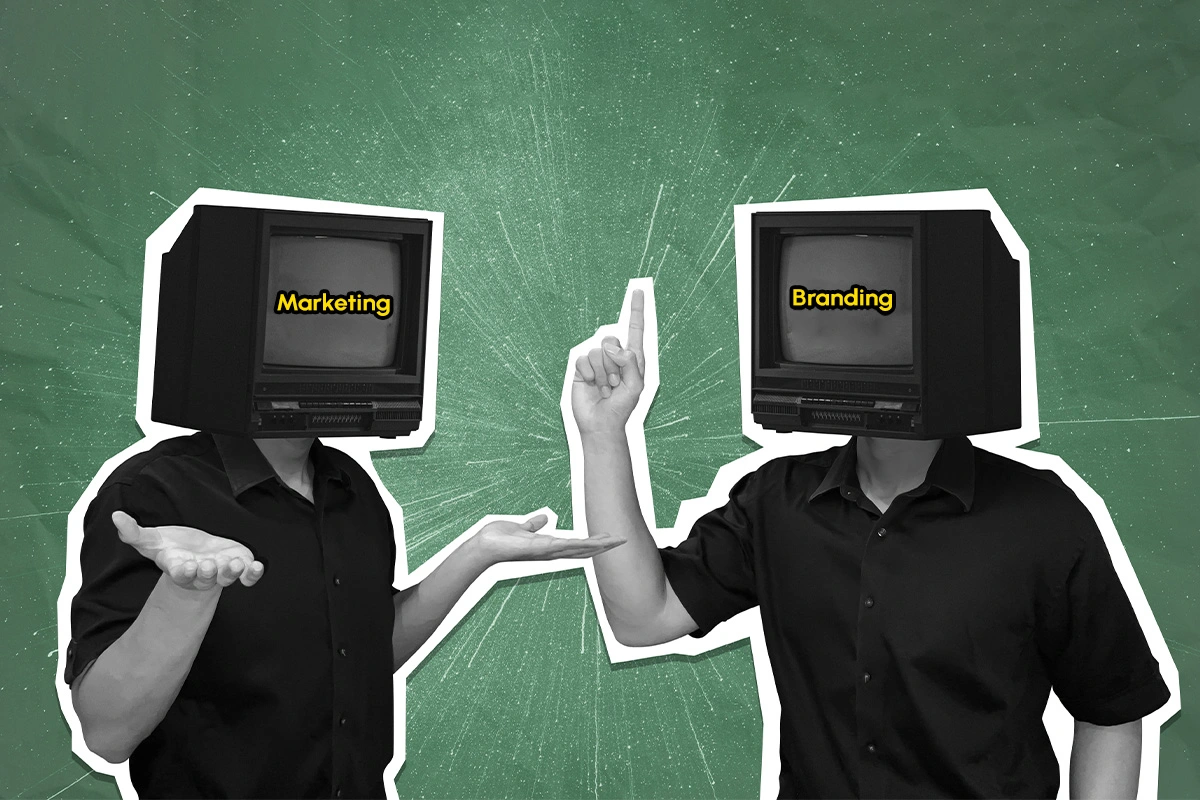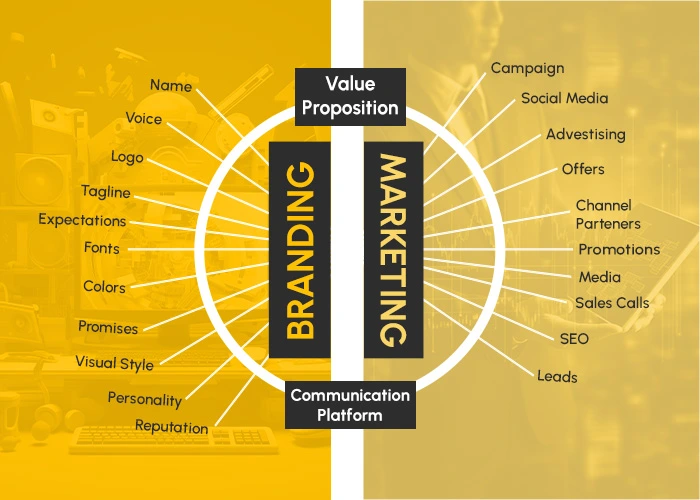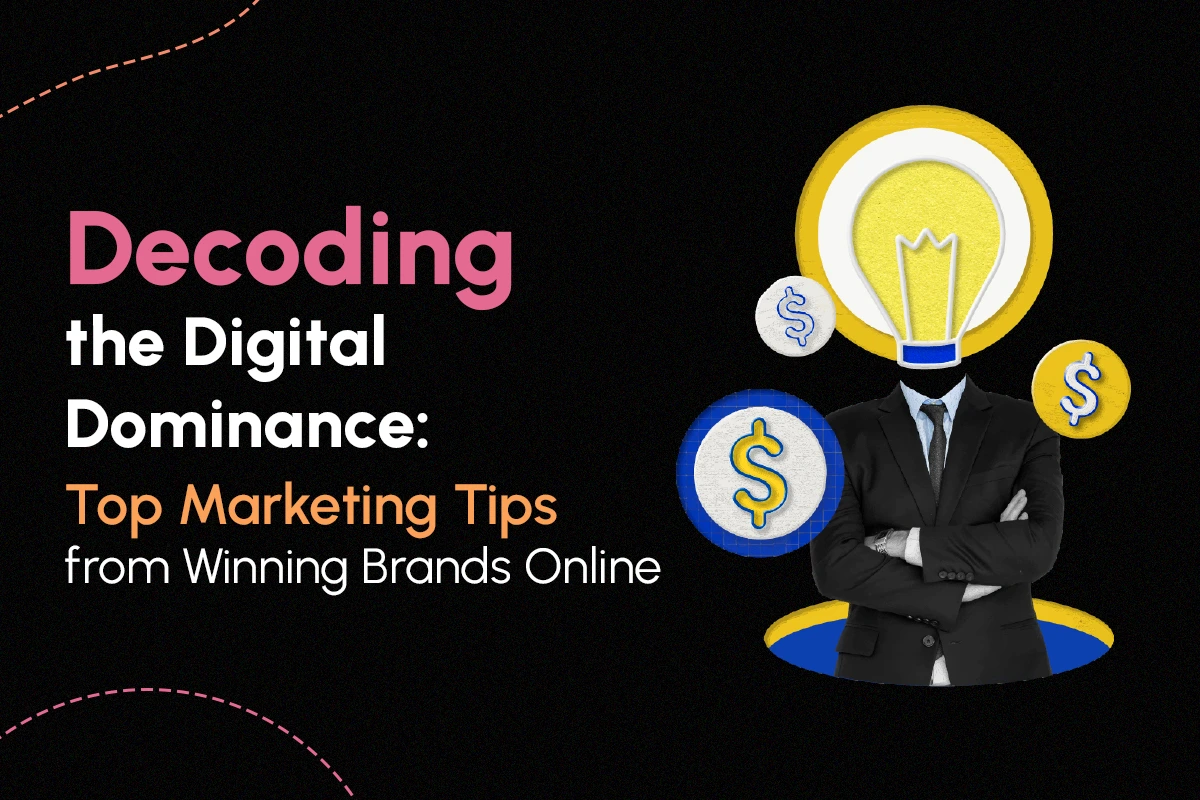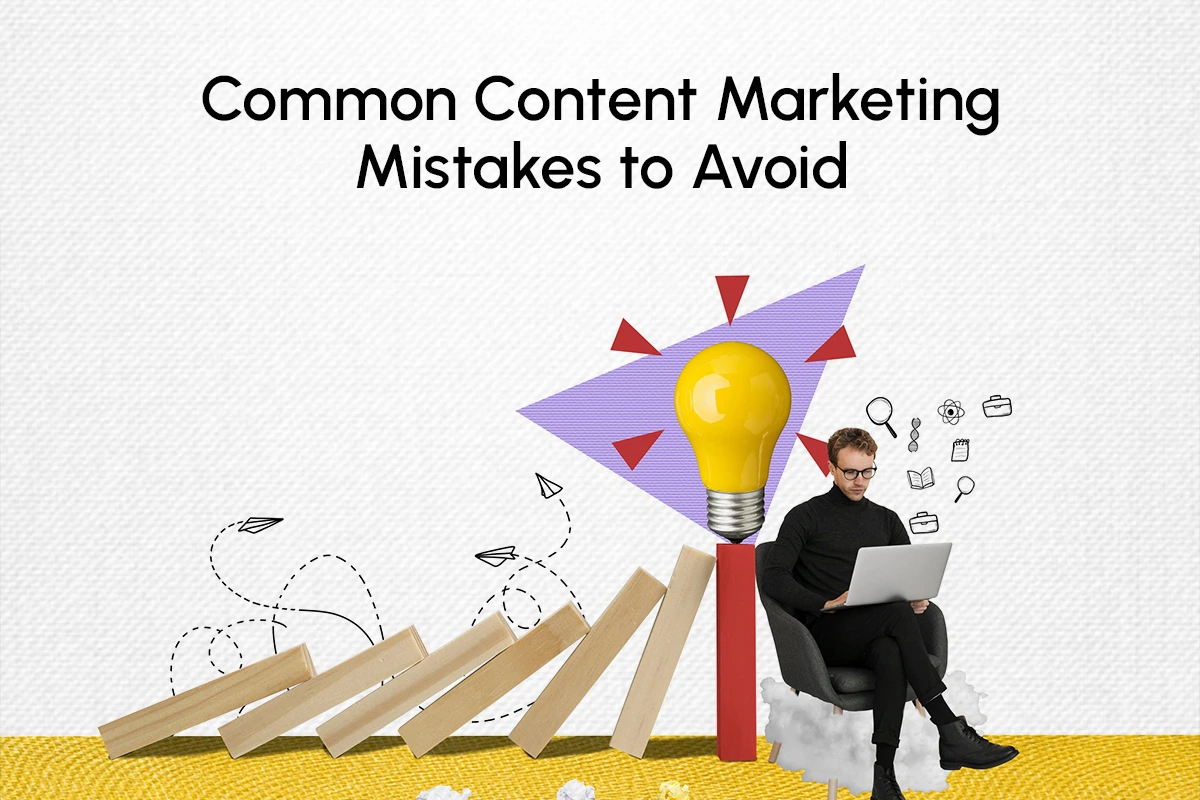Confused between marketing and branding? If so, then hop in.
At times, it appears that many individuals have no clue what branding is and how it’s different from marketing. This is something I have heard many creative professionals grapple with. While the meanings of these two words overlap each other a lot, it’s essential that the differences between marketing vs branding be discussed. It will make your business strategy flow in the right direction, ultimately getting you to a position where you can say, oh, yeah, they were never the same.
You were so wrong when you thought that marketing and branding were the same.
If business holders don’t know or understand that these two coinciding terms differ, their companies experience drastic growth and success problems.
Fact: When owners mistake branding with marketing, it ends up being difficult for 60% of firms to effectively position their products in the market and engage customers.
What other things could happen from this simple confusion? Check out a few challenges out of many.
- Fail to identify the unique selling points
- Poor brand awareness
- Inconsistent brand messaging
- Ineffective marketing efforts
- Negative brand reputation
- Missed growth opportunities
- Lower profitability
By now you must have understood what can go wrong if you do not recognize the concept of these two terms well. And if you are fully convinced, then let’s deeply get to comprehend them.
Poor understanding of Branding and Marketing Concept: The Differences

1. Branding defines your identity and purpose, while marketing communicates them.
Branding is about defining who you are as a company and why you exist. It is the very core of your company’s personality, starting with your vision to pursue the goals and ending with the characteristics that make you different from others. Marketing, on the other hand, is how you communicate that identity to your audience. It’s the strategic approach to spreading your brand message, creating awareness, and engaging with potential customers.
A classic example is Tata Group; it signifies trustworthy products and services, high quality, as well as ethical business conduct—these are the “what stories” justified by “why” stories. So far as marketing strategies are concerned, for instance, sponsoring cricket matches or having their ads with “Jaago Re” text serve as illustrative examples of how they disseminate brand messages to the masses.
2. Branding builds lasting impressions, while marketing focuses on immediate goals.
Branding is about building a lasting impression and relationship with your customers. Long-distance races are more than quick dashes; they take time to complete. This is contrary to marketing, which typically views an item or project in terms of short-term benefits like increased sales figures or the introduction of new product lines.
Amul, India’s largest dairy brand, has maintained its brand identity of the Amul girl and the tagline “The Taste of India” for decades. Their marketing campaigns, however, change regularly, often commenting on current events or new product launches.
And how can we not talk about Nike’s “Just Do It” slogan? It has been the basis of their brand since 1988. Their marketing campaigns, however, change frequently, featuring different athletes and products to stay current and drive sales.
3. Branding provides the big picture, while marketing zeroes in on specifics.
Branding considers the whole perspective—your whole reputation and how you would like others to see it. It is all about building an image that is followed throughout the organization with regards to the quality of products you offer or services you provide, the customer care you afford to clients, and the social cause you champion, among others.
And marketing, on the contrary, deals with performance-oriented actions and campaigns to attain specific objectives. Its strategies are more focused and tactical, designed to achieve goals like increasing sales in a certain product category or expanding into a new market segment. Let’s take an example.
Reliance Industries’ brand conveys the message of being a company that deals in all facets of Indian life. But their marketing strategies are focused at times, such as on affordable data plans for Jio or grocery delivery service through Reliance Fresh.
Another example is Coca-Cola, a brand about happiness and sharing. Their marketing campaigns, however, are more specific – like their personalized name bottles or holiday-themed advertisements.
4. Branding sets your direction, while marketing provides the steps to get there.
Branding determines the overall course for your company. It informs every choice you make, from product development to customer service policies to corporate partnerships. And when we talk about marketing, it encompasses the precise strategies you employ to achieve this goal. Marketing provides the tactical roadmap, detailing specific actions, channels, and messages to use to move towards the destination set by your brand.
Paytm’s brand trajectory is about leading India’s digital payment revolution. Their marketing tactics include cashback offers, tie-ups with local vendors, and celebrity endorsements – all aimed at increasing user adoption of digital payments.
5. Branding creates emotional connections, while marketing prompts immediate responses.
A strong brand builds a relationship with its customers on an emotional level as well as makes the customers loyal. It is all about making consumers or customers have some level of confidence in the company, the product, the brand, or the service that is being offered beyond meeting their basic needs for consumption.
Marketing, on the other hand, is meant to elicit specific behaviours, such as purchasing a given product or subscribing to a given listserv. While branding elicits the emotional ties that consumers establish with a specific brand, marketing is generally more behaviourally oriented, intended to generate an immediate and tangible response from consumers.
Starbucks has built a loyal following through its brand of being a “third place” between home and work. Their marketing actions, like limited-time seasonal drinks or mobile app rewards, are designed to drive foot traffic and purchases.
6. Branding establishes your worth, while marketing turns it into revenue.
Your brand is what distinguishes you and provides value to your buyers. It’s the intangible asset that justifies premium pricing, builds customer loyalty, and gives your company a competitive edge. Marketing is the process through which you create revenue from there. It’s about translating the value created by your brand into noticeable business results, whether that’s sales, market share, or customer acquisition.
Tesla’s brand is about revolutionary electric vehicles and sustainable energy. Their marketing efforts, like referral programs or showcasing new features, are how they turn that brand value into vehicle sales and energy product installations.
Marketing vs. Branding: which one to focus on?
Well, it is all about the truth; you can’t have one without the other. Marketing and branding services are vital ingredients for business success, but their importance might shift depending on your company’s stage and objectives.
At first, new businesses should concentrate on branding to create a strong identity and unique selling proposition. As you grow, marketing becomes more important because you want to reach out to your customers and make them participate in your business. Both should be kept in balance by established companies as they build their brand continually and execute marketing campaigns with laser-like focus.
It is important to remember that your brand is what all your marketing efforts stem from. Without this strong basis, your advertising efforts may lack purpose and unity across time. On the other hand, no effective brand can be fruitful without sound marketing strategies to popularize it.
Which one should you give your attention to now?
So, the takeaway from this discussion is that it is not a case of one against the other; it’s more like they’re two peas in a pod, relying on each other. And what is equally important is understanding the difference between marketing and branding, which is a blurred concept in a lot of minds. Wouldn’t you agree?
Also, if you are in search of a branding and marketing agency, feel free to contact us.




